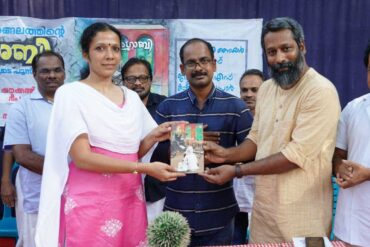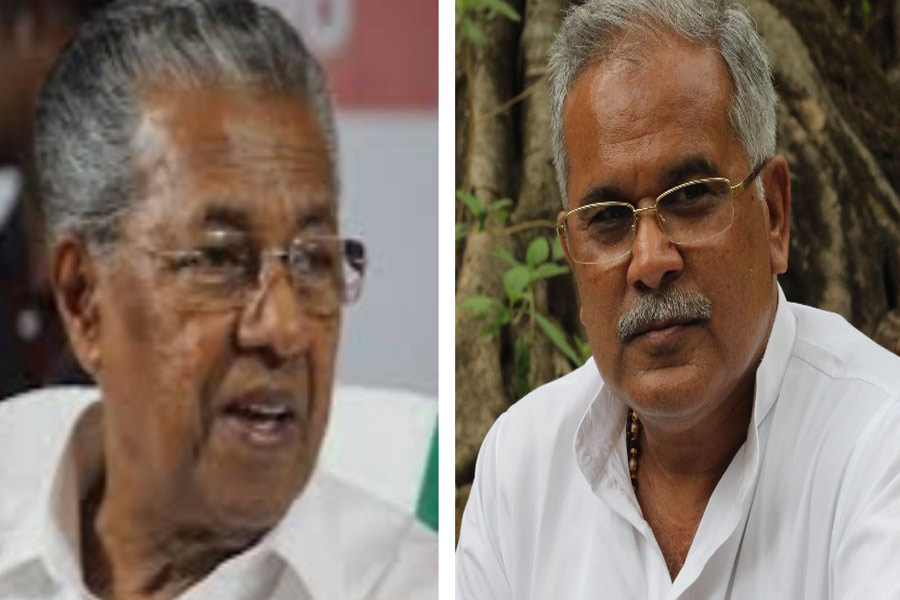We have experienced sexual fantasies that turn us on and disgust us at the same time. Can this uncomfortable, yummy-yucky place help us understand the power of nationalism as espoused by the Right Wing? In exploring this idea, I will draw upon research that I undertook for my forthcoming book entitled Fantasy Frames: Sex, Love and Indian Politics.
I would like to begin with responses to an anonymous online sexual fantasy survey that I conducted. The 30 respondents were urban, educated and from diverse gender and sexual backgrounds. The fantasies which they shared with great honesty, broke a wide range of sexual norms including sex with more than one person, sex in public places, sex for money and sex with a person of the “wrong” gender. However it was not these fantasies but those which involved pushing boundaries of mutuality, dignity, consent and rights that respondents expressed bewilderment and discomfort about. This is what a 37-year-old woman had to say about one such fantasy:
“I don’t understand, and find myself very troubled that I find that hot. I’m the clichéd independent woman… why would (such) an act…be attractive to me.” A transman wrote,“I have a considerable amount of shame around (my) fantasy. I keep rationalising it by reminding myself that…the acts (in my fantasy) are all consensual. This makes me feel better for a while, but I return again and again to shame…I am somewhat surprised because my actual/non-fantasy sex life does not reflect these acts or even desires.”
“How can it be that someone like me can have a fantasy like this” was such a recurrent theme that I’m compelled to use ‘How Can It Be’ as a hashtag in the book. I would like to flip the question around and ask: ‘How can it not be so?’ But of course, we fantasize about that which is prohibited. As the psychoanalyst Bruce Fink succinctly puts it, “Prohibition eroticizes”. Our sexual fantasies are bound to be not Okay.
My purpose here is not to reassure anyone, but to help us see the play of permission and prohibition. In the case of liberal ideology, the respondents felt that they did not have permission for prohibited erotic fantasies and desires. Might it be that politics, and I’m looking at Right-Wing Nationalism in particular, offers its followers precisely this? Permission to do that which is prohibited. Might this help lessen the bewilderment experienced by many a liberal — #HowCanItBe that a neighbor can kill, and that too so mercilessly? #HowCanItBe that ordinary folk retweet/like/share enough to make the most vicious memes and videos online go viral?
Let’s look at what Right-Wing Nationalism gives “us” permission for. (I use the term “us” here not because I am Hindu, but in order to underline the logic at play.) In the digital space, for instance, it allows us to be as abusive as we like about Muslims, about “sick-ularists”, about “presstitutes”, about any one in fact who seems to disagree with us. Free from the burden of having to be “good”, of having to be secular, of having to repress, of having to be diplomatic in our choice of words—we can, at last, just let go!
In his article The Ego, The Superego and the Twitter, psychiatrist and writer Dr Jori Goodman asks whether we remember fondly the days of being the “class wit”, the one with the “quick, sharp cutting remark that embarrassed the kid with the bad zits, and everyone snickered”. He moves further back in time from the obnoxious child to the infant who can “eat, scream, poop and sleep whenever and wherever” it wants. Fast forward to when we become more sophisticated and are able to be subtle, to time and modulate our responses rather than simply being derogatory. But then suddenly there are those moments when we are able to be precisely like this. “Not a moment’s thought or reflection. No judgement, prudence or censorship.” And we tweet! Although Goodman is writing in a more general context about twitter, it can help us glimpse how different sources of authority impose prohibitions upon us all through our lives and why it might be exhilarating to break free.
Turning to physical acts of violence against Muslims, Right-Wing Nationalism gives permission for doing that which all norms of humanity and human rights forbid. There is an erotic charge at play when these prohibitions are broken, and more. There is permission for doing that which is forbidden, or one might even say blessings: From the garlanding of the men accused of lynching Alimuddin Ansari in Jharkhand by BJP’s former Union Minister Jayant Sinha to the Police which refuses to lodge the FIR, to doctors who neglect enough to kill, as in the recent lynching of Tabrez Ansari.
Might it be that Right-Wing Nationalism is the big Other, the term from Lacanian psychoanalysis for the ultimate authority? Might the filming of violence be critical because it is an offering to the big Other? When Alimuddin Ansari who died of injuries in Ramgarh, Jharkhand, was being beaten as he sat cross-legged on the ground, the men hitting him stood in a semi-circle, his face held so that he could be hit from behind and “pose” for the camera. The video that Vinay Kumar Meena uploaded of cursing, slapping and pulling the beard of an elderly Muslim man, insisting that he say ‘Jai Shri Ram’ in February 2018 from Sirohi, Rajasthan was dark, hazy and shaky. Filming with one hand and beating with the other could not have been easy. True offerings seldom are.
Like sexual fantasies that carry an erotic charge precisely because they are prohibited, Right-Wing Nationalism has an erotic charge because the online abuse and physical violence rupture prohibitions against doing that which is inhumane and inhuman. In fact it goes much further. It offers the terrible, transcendent kind of enjoyment by giving permission for that which prohibited.







